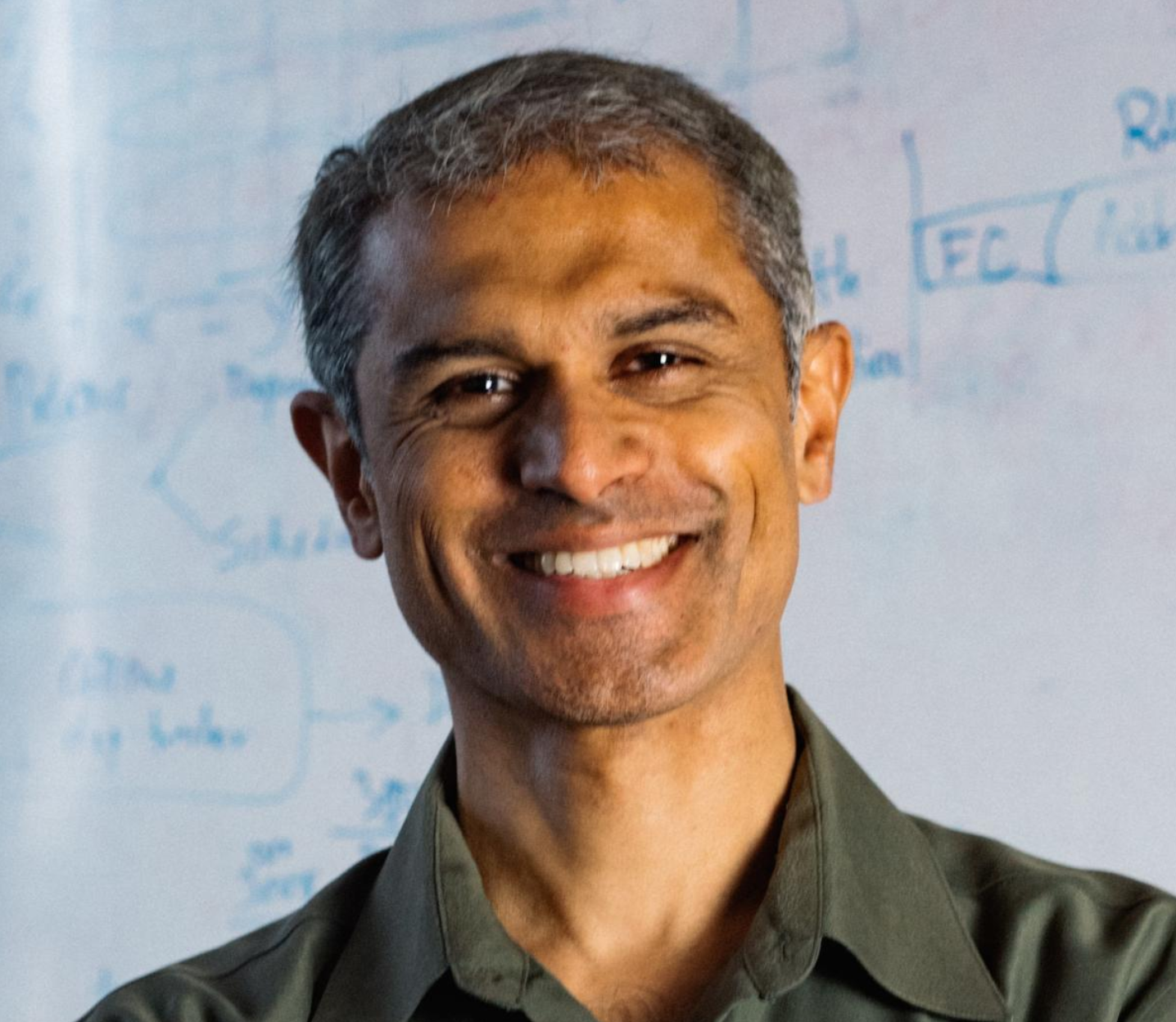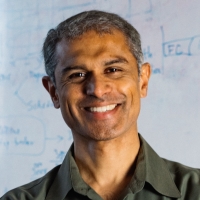The prestigious 2020 Infosys Prize in Engineering and Computer Science was awarded to Hari Balakrishnan, the Fujitsu professor of Electrical Engineering and Computer Science, co-leader of the Networks and Mobile Systems Group within CSAIL, and co-director of MIT’s Center for Wireless Networks and Mobile Computing, for his outstanding contributions to science and research.
In the announcement made by the Infosys Science Foundation, Balakrishnan was lauded for his groundbreaking work on computer networking and mobile and wireless systems, including the development of mobile telematics to improve driver behavior and road safety. “Hari has repeatedly blazed the trail in mobile and wireless systems for others to follow,” said Arvind, Faculty Head of Computer Science and Charles W. & Jennifer C. Johnson Professor of Computer Science and Engineering, during the awards ceremony, which was conducted remotely. “TCP, the communication protocol on which the Internet is built, was developed for wired networks, and it was a big technical challenge to adapt this protocol for high-speed wireless communication. In the mid-1990s, Hari was the first to improve the performance of TCP on wireless networks and develop novel mechanisms to handle mobility seamlessly. You all rely on GPS for outdoor navigation, but, twenty years ago, in 2000, Hari and his students developed Cricket, the first accurate indoor location system using radio and ultrasonic ranging.”
Perhaps most influential of all Balakrishnan’s innovations, however, was the development of the CarTel system between 2005 and 2010, which combined sensory data from cell phones and cars with city maps for a huge variety of applications, including road hazard sensing and the analysis of real-time driver behavior for insurance purposes. “The CarTel project led to the founding of Cambridge Mobile Telematics (CMT) by Hari and Professor of EECS Sam Madden in 2010. Today, CMT is the world’s largest mobile telematics provider, supporting many leading insurance and rideshare companies in 25 countries and helping to reduce the millions of road crashes that occur annually,” Arvind noted, adding, “My wife uses Hari’s technology in her smartphone to convince me that she is a better driver than me!”
An outsized influence upon his field, Balakrishnan’s research is taught in undergraduate computer science programs worldwide, and twenty of his papers have been cited over 1,000 times (according to Google Scholar). “He is a successful researcher and an entrepreneur who is making the world a better place. He makes all of us, and India, proud,” concluded Arvind.
Hari Balakrishnan received his PhD in 1998 from UC Berkeley and a BTech in 1993 from IIT Madras, which named him a distinguished alumnus in 2013. He was elected to the National Academy of Engineering in 2015 and to the American Academy of Arts and Sciences in 2017. His honors include the IEEE Kobayashi Computers and Communications Award (2021), Fellow of the ACM (2008), Fellow of the IEEE (2020), Sloan Fellow (2002), and the ACM dissertation award (1998). He has received several best-paper awards including the IEEE Bennett paper prize (2004), and six "test of time" or “hall of fame” awards for papers with long-term impact from ACM SIGCOMM (2011), SIGOPS (2015), SIGMOD (2016), SIGMOBILE (2017, 2018), and SenSys (2019). Balakrishnan has also been honored for excellence in research and teaching at MIT with the Harold E. Edgerton faculty achievement award (2003), the HKN best instructor award (2018), the Jamieson award (2012), the Junior Bose teaching award (2002), and the Spira teaching award (2001).
The Infosys Prize is awarded annually in six fields: Engineering and Computer Science, Humanities, Life Sciences, Mathematical Sciences, Physical Sciences and Social Sciences. The award aims to celebrate stellar achievements in both applied and theoretical research, and to help encourage young students to consider science and research as a career path. This year’s winners were selected by a scholarly jury from among 257 nominations.


